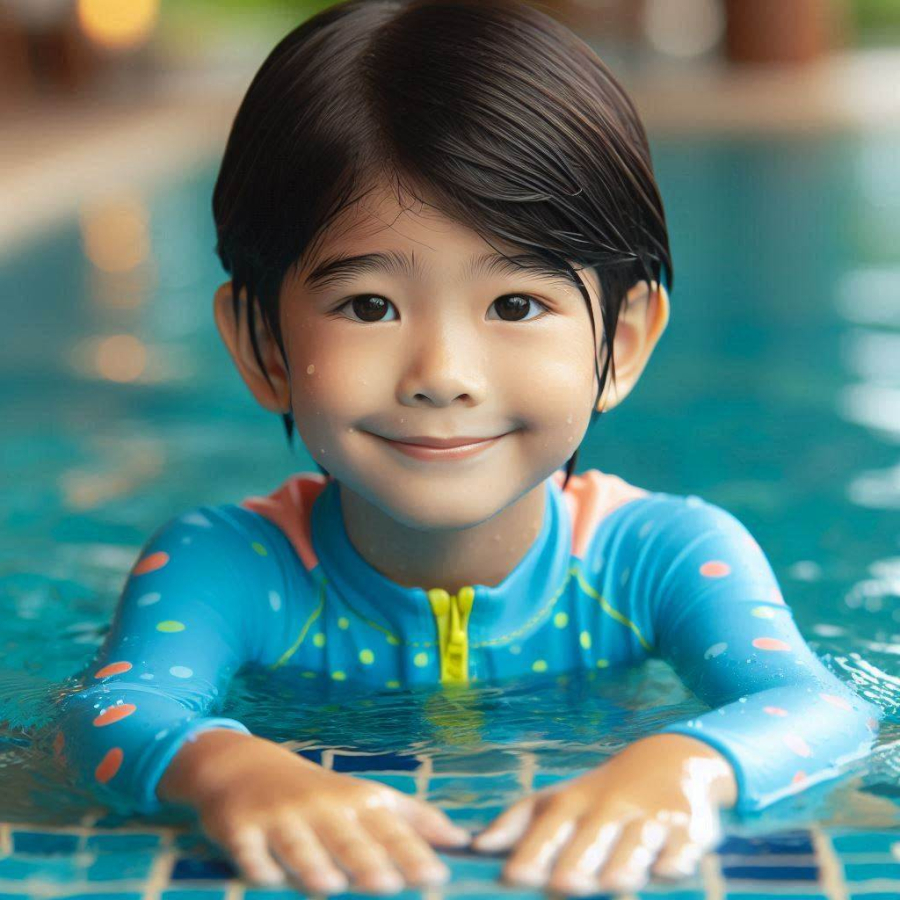## Keep Your Children Safe Around Water This Summer
During the summer, many parents take their children swimming to cool off. However, this is also the time when most drowning incidents occur.
According to the Centers for Disease Control and Prevention (CDC), children between the ages of 1 and 4 are most at risk of unintentional drowning. This situation is exacerbated when families take their children to unsafe mobile pools, private pools, or apartment complex pools.
Therefore, it is crucial to supervise your children when they are in or around water. Whether it’s a backyard or public pool, an adult should always be watching the children.
Never Leave Your Child Unattended, Not Even for a Second
The most important safety rule when swimming with children is for parents to always keep an eye on them. If you need to leave the pool area, take your child with you. Never assume that “I’ll just be a minute” or that someone else is watching them. Remember, floaties are no substitute for adult supervision.
Parents should instill in their children the habit of asking for permission before entering the pool. This creates an additional barrier, ensuring children understand they need adult supervision and should never play in the water alone.
Additionally, when visiting public pools, show your children where the lifeguards are stationed so they know where to seek help if needed.

Always Keep a Close Eye on Your Child: A Crucial Safety Rule
Keep Toys Away from the Pool Area
One of the essential safety rules when swimming with children is to keep toys, especially those with wheels, away from the pool area. Children tend to be energetic and may accidentally fall into the pool while playing with these items.
For families with backyard pools, ensure that the entrance is securely locked so children cannot access it unsupervised. Also, remove any objects that children could use to climb over safety fences.
Support Your Child in Learning Water Safety Skills
Investing in swimming lessons for your child is a wise decision. Children should be taught how to prepare their bodies before entering the water, how to relax in the water, and how to hold their breath in an emergency. Skills like taking a breath and swimming to the edge of the pool when they start to feel tired are invaluable. Knowing how to swim also helps children cope better if they accidentally fall into a pool unsupervised.
However, even if your child knows how to swim, don’t become complacent. In reality, many drowning incidents occur with children who can swim. When suddenly falling into the water, children may panic and forget their swimming skills. Therefore, continuous parental supervision remains the most critical factor in ensuring your child’s safety.

Investing in Swimming Lessons for Your Child Is a Wise Decision
Provide Bright and Visible Swimwear and Appropriate Floatation Devices
Water can reduce visibility, making it harder to keep an eye on your child due to ripples, splashes, and reflected light. To easily spot your child when they are swimming, choose bright and vibrant swimwear that stands out from the typical pool colors of blue and green.
Additionally, it’s important to note that arm floaties are not the safest option for young children. They can easily slip off during swimming. Instead, opt for a well-fitting life jacket.
Ensure the life jacket is snug enough so it won’t slip over your child’s head, and all straps and buckles are securely fastened. In addition to providing floatation devices, teach your child how to orient themselves, swim to the pool’s edge, and climb out using the steps or exit ladder.
Parents Should Learn Basic Lifesaving and First Aid Skills
It is essential for parents to learn basic first aid and lifesaving skills to respond effectively in emergency situations. When faced with dangers that your child may encounter, remain calm and take action. Do not panic or stand by idly. If your child jumps into the pool and shows signs of drowning, quickly dive in and bring them to safety. Your calmness and timely action can effectively help your child overcome the danger.
































